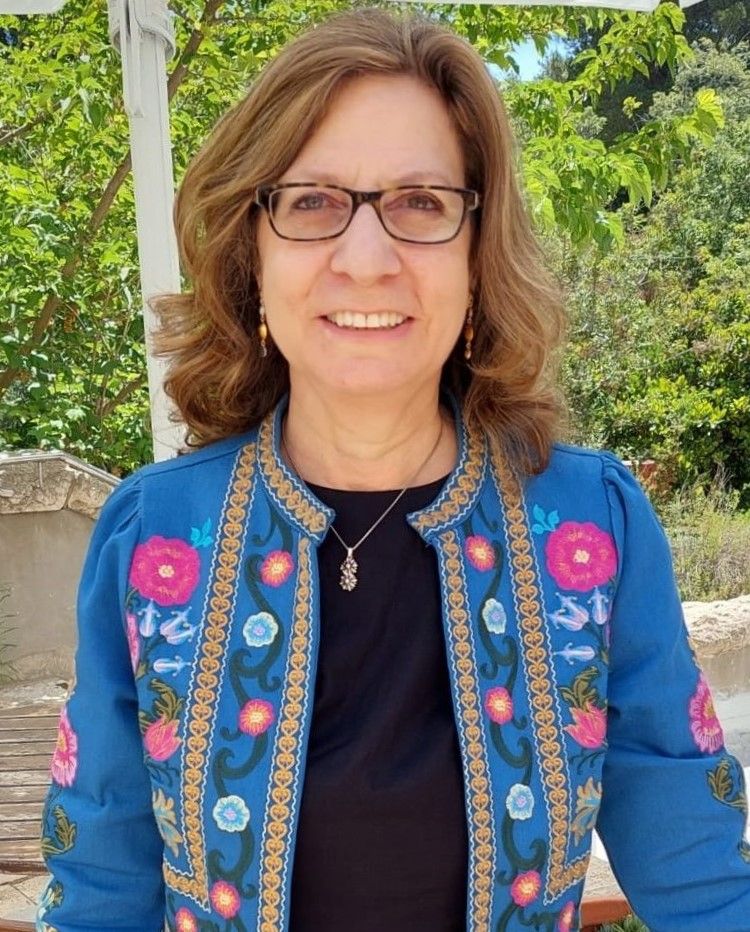
“There is a need to know what’s going on in Jerusalem,” said Dr. Camelia Suleiman in a lecture hosted by GenCen on November 18th, 2022. Her talk, “To be Maqdisi in Jerusalem: Palestinian Women Education,” explored themes of women’s empowerment, the evolution of education, and Israeli citizenship. The talk reflected Dr. Suleiman’s unique, situated standpoint as a Palestinian woman, an Associate Professor of in the Department of Linguistics, Language, and Culture at Michigan State University, and her experience as a visiting scholar at the Hebrew University of Jerusalem. Her tone conveyed passion and reverence for her family and culture, as well as optimism for the future.
Dr. Suleiman’s research focuses on the sociolinguistics of Arabic and it’s contact with Hebrew, a subject she explores extensively in two of her most recent books, The Politics of Arabic in Israel: A Sociolinguistic Analysis, published in 2017, and Arabic between State and Nation: Israel, the Levant and Diaspora, published in 2022. We sat down with Dr. Suleiman after her talk to learn more about her experience working as a visiting professor at the Hebrew University of Jerusalem while gathering data for her latest book. She shared that she had not intended to focus on gender in the book. Rather, her original thought was to explore the place of Arabic in the Israeli-Palestinian conflict. While at Hebrew University, however, she was struck by how many Palestinian women were taking advantage of the opportunity to attend university. She described this cultural shift as a display of women’s persistence and tenacity. She optimistically predicted that many Palestinian women would begin entering fields that they were not previously allowed to enter.
As humans, researchers produce knowledge within a social, historical, and linguistic context unique to their experience. Thus, all the knowledge that we produce is, as Donna Haraway describes, situated knowledge. Dr. Suleiman explained that her own experiences at Hebrew University shaped the direction of her research as she began focusing on how women are responding to the conflict in Israel and Palestine. The research connected her with her own past, as well as that of her mother and grandmother.
When researchers practice reflexivity, or critically assess how their subjective experiences shape their underlying assumptions and their relationship to research participants, they gain a more objective, well-rounded perspective on the issue while harnessing the strength of their personal connection to the topic. Dr. Suleiman does this masterfully in her own work. Back in the US, she reflected on her experience conducting research, saying, “It’s a struggle because it’s a privilege to be sitting in a library or still in my office, and thinking my great thoughts while others are suffering. I felt very guilty. I felt very guilty and useless. But now, through my research, I found a way of reconciling both and the guilt because the struggle is going on.”
Before publishing this article, we reached out again to Dr. Suleiman in late 2023 to understand her thoughts on how the recent escalation of conflict has impacted those students whom she had helped in attending Hebrew University. She shared, “Universities are closed everywhere in Israel and Palestine, including Hebrew University.” As for the students Dr. Suleiman has aided in attending Hebrew University, she says she “is trying to support them and encourage them as much as [she] can.” And although thousands of lives have been irreversibly changed because of this conflict, Dr. Suleiman has remained hopeful because of the powerful potential of education.
“Education knows no boundaries and no walls,” explained Dr. Suleiman. She added that historically, Palestinians greatly valued education, including women’s education, and the region has been home to many schools and colleges as far back as the 19th century.
“The right to education is a human right. [This] gives me confidence, as well as the determination of students gives me confidence [in the future],” said Dr. Suleiman.
Dr. Suleiman is an Associate Professor in the Department of Linguistics, Language, and Cultures at Michigan State University where she led the Arabic program from 2012-2020. She is also an affiliate of GenCen and has taught several women’s studies courses through the GenCen Faculty Fellows Program. You can read more about Dr. Suleiman.